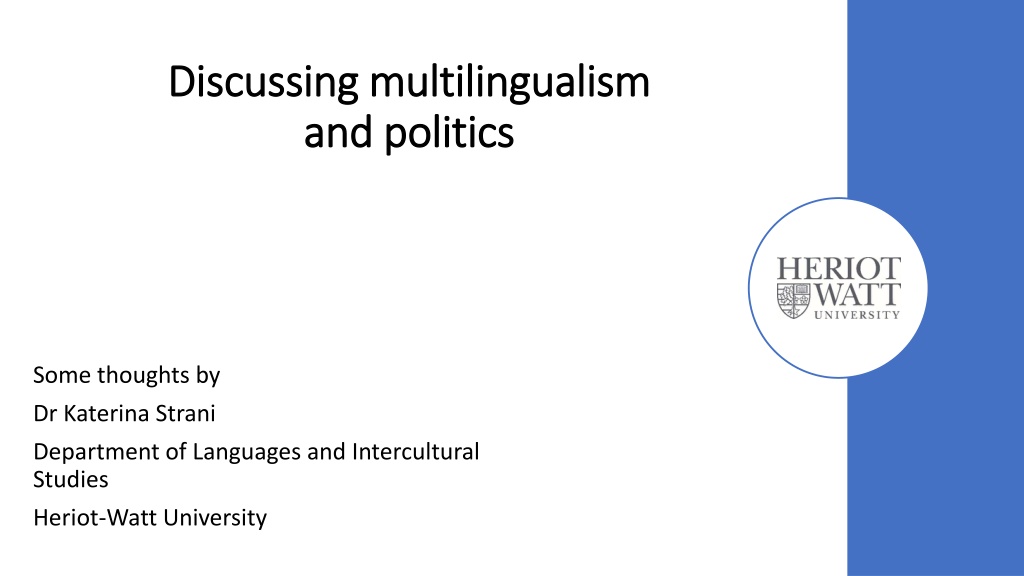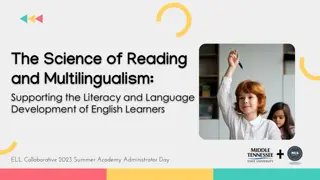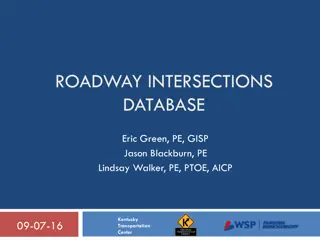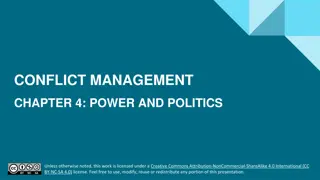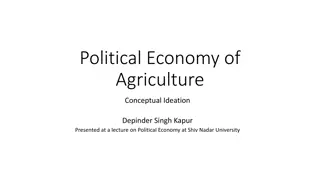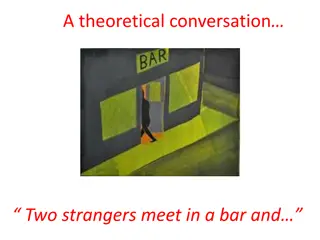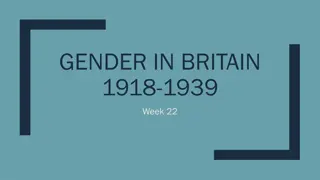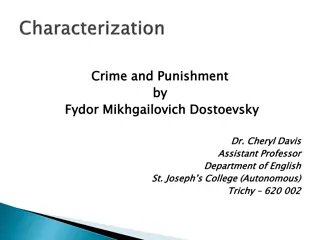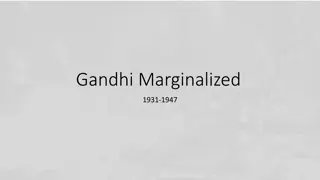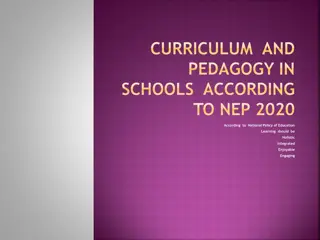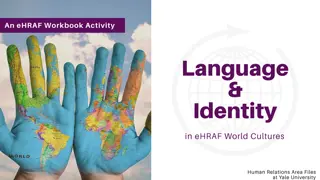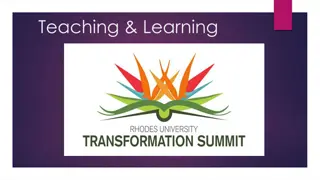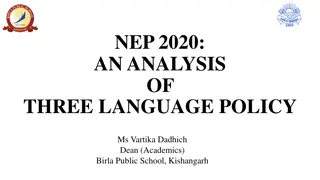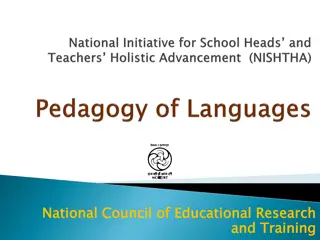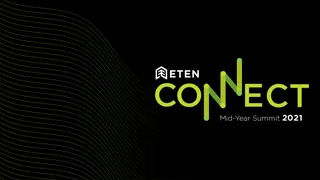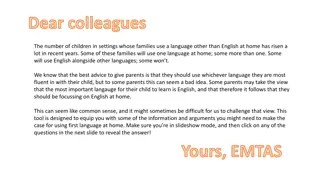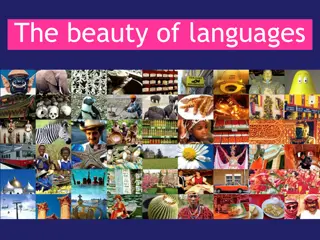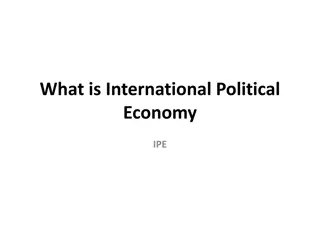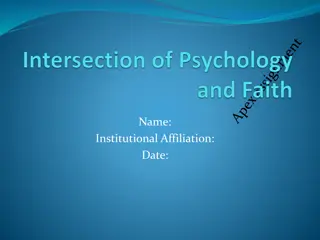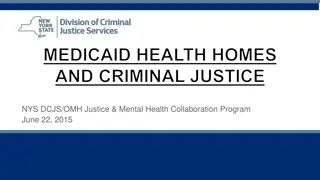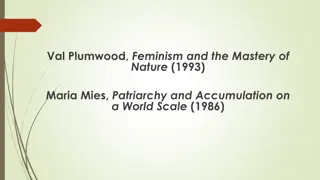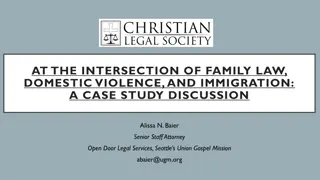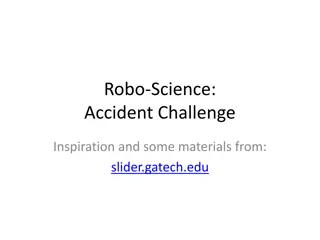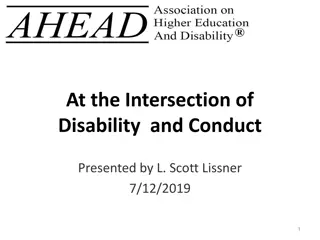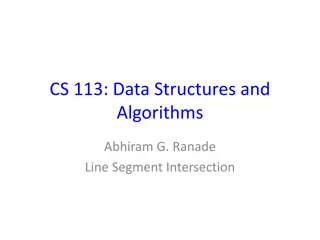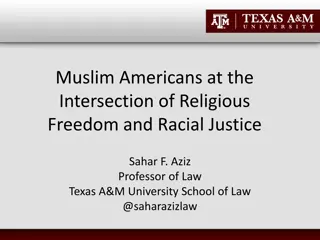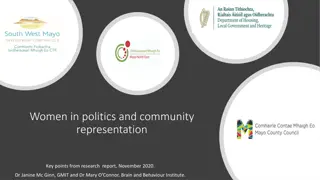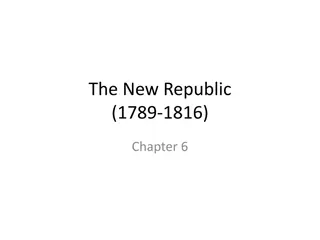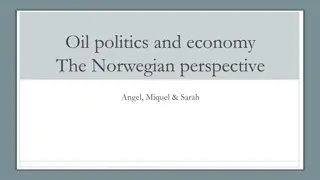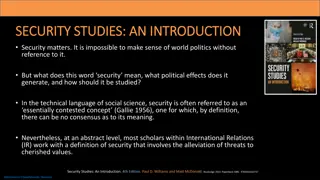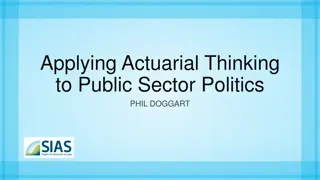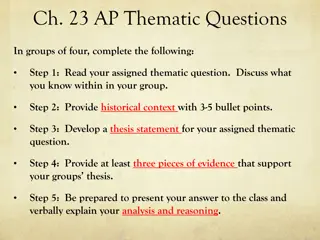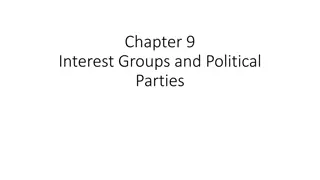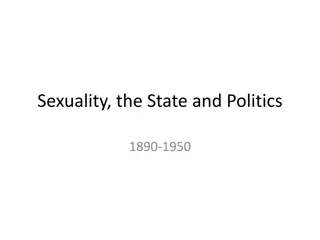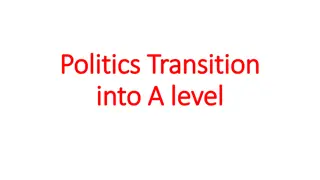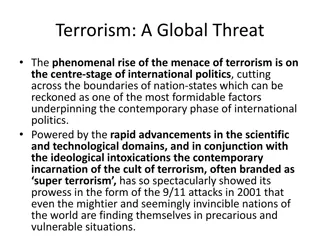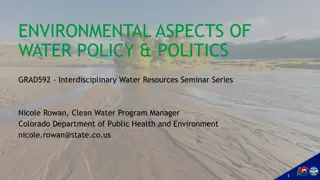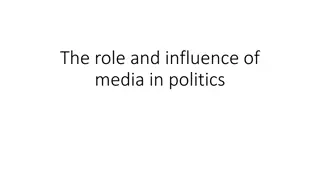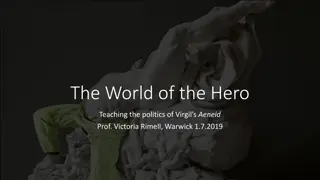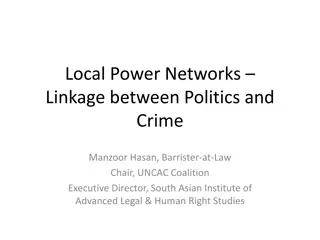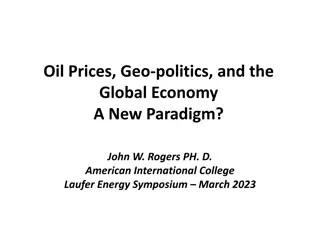The Intersection of Multilingualism and Politics: Insights by Dr. Katerina Strani
Language plays a crucial role in shaping individual and collective identities, impacting attitudes, behavior, and culture. Multilingualism influences citizenship, defining belonging within society and determining rights and obligations. Examples of multilingual public spheres demonstrate the complexity of language dynamics in different contexts. The nuances of language definitions, native speakers, fluency, and their importance in identity are explored, highlighting varied forms of language usage and communication.
Download Presentation

Please find below an Image/Link to download the presentation.
The content on the website is provided AS IS for your information and personal use only. It may not be sold, licensed, or shared on other websites without obtaining consent from the author. Download presentation by click this link. If you encounter any issues during the download, it is possible that the publisher has removed the file from their server.
E N D
Presentation Transcript
Discussing multilingualism Discussing multilingualism and politics and politics Some thoughts by Dr Katerina Strani Department of Languages and Intercultural Studies Heriot-Watt University
Setting the scene Language as a repository of history and culture that is central to individual and group identity (Bauman & Briggs 2000). Language as the soul of the people (Ipperciel 2007: 401).
Peoples lifeworld, attitudes, behaviour, culture and personality change when they use a language different from their native one New perceptions of their own subjective world, the objective world, intersubjective world (Piaget) New attitudes, behaviour, arguments 3
Citizenship set of practices (juridical, political, economic and cultural) that define a person as a component member of society (Turner 1993) Citizenship not culture-blind (Nic Craith, 2004; Habermas, 2005) Citizenship-belonging nexus. (Bauboeck, 2010) Nature or nurture?
Citizenship Citizenship as commitment Citizenship as attachment to a specific polity constructed as a state in terms of rights and obligations (Kockel, 2010) Determines who does and does not belong to the people of the state (Bauboeck, 2010; Kockel, 2010) Rights and obligations of the citizen. Connected to legitimacy Nationality important for both identity and citizenship. what about language?
Examples of multilingual publics Language-defined public spheres, (minority or diasporic languages) e.g. Gaelic public sphere in Scotland, Turkish public sphere in Germany Many languages within the same PS, e.g. in officially multilingual countries, EU Online publics: emoticons, avatars, metrolingualism, translingual communities (e.g. gamers) Non-native speakers speaking the dominant language(s) in PS settings
Multilingualism (?) What is considered a language ? Who is considered a native speaker? Who decides on fluency? Is it important? Language and identity plurilingualism, polylingualism, interlingualism, multiplurilingualism , metrolingualism, superdiversity, translanguaging and crossing (Unger, Krzyzanowski and Wodak, 2014: 3-4)
Multilingualism constitutes an integral part of the contemporary understanding of the public sphere, in which political argumentation may defy linguistic barriers. BUT despite the importance of multilingualism on the social construction of contemporary public spheres, this remains relatively under-explored. Presupposition: one language! Multilingual reality v. monolingualist ideology (Grani , 2012; Doerr, 2012; Pym, 2013 and others). assumption of linguistic homogeneity in politics 8
A new phenomenon? 19th century France (Breton, Basque, Catalan) Belgium Switzerland Empires (Ottoman, Habsburg) African multilingualism Qing Empire (Chinese, Manchu, Mongolian, and Tibetan + regional languages) etc. at public sphere level - usually spoke others languages - lingua franca / lingua communis 9
Some relevant studies (1) Wodak: key works on language and politics, political discourse, language ideology Krzyzanowski (& Wodak): EU multilingualism, language policy Doerr (2012): MORE DIVERSITY MORE DEMOCRATIC (MORE PUBLIC ) novel listening habits because of heightened awareness of potential cultural misunderstandings Higher inclusivity despite linguistic pluralism and asymmetric language skills of participants monolingual environments more exclusionary . BUT THIS WAS ONLY AT ESF ideologically homogeneous 10
Nanz (2006) and Eder (2007) have examined how the linguistic variation in the EU has affected the creation of a European public sphere. Risse & Van de Steeg (2003) : no need to speak the same language to communicate in a meaningful way. Pym (2013) Translation as an instrument of multilingual democracy : current technologies and practices of (collective) translation. for a democracy, should we be translating, learning languages, speaking just one common language, or something else? ?
How does it work ? With the exception of countries with multiple official languages, we still have not moved away from monolingualist ideology. Choice of language in deliberation is always a political choice Language defines identity and political communities (cf. Miller & Hashmi, 2001) e.g. Belgium, Spain, Switzerland, Canada a) language groups are territorialised ( territorial imperative ) b) federalisation: demand of political recognition and self- government powers through federalisation
Scotland New Scots Multilingualism BSL (Scotland) Act 2015 Equal rights Additive identities Civic responsibilities and rights citizenship Migrants in dominant publics Especially in the context of Brexit, to show the contrast with the rest of the UK In 2011, there were 284,352 usual residents in Scotland who spoke a language other than English, Scots, Gaelic or BSL at home, representing 6% of all residents aged 3 and over. Of those residents, 19% (54,186) spoke Polish at home (Migration Observatory).
MSP Humza Yousaf takes oath in English and Urdu at Scottish Parliament https://www.youtube.com/watch?v=FCiRZXg5TzE
Power differentials Power differentials in multilingual (esp. diasporic) PSs are not only rooted in status, education or access, but in: the language chosen for communication how well the dominant language is spoken (Doerr, 2012; cf. Fraser 2007) how well the home/minority language is spoken (which may be an indicator of status, education etc) Signed languages a monolingual public sphere an exclusionary practice
In diasporic public spheres in particular (Appadurai, 1996), multilingualism <> multiculturalism. (Language and citizenship, citizenship as a culture-blind concept (Nic Craith, 2004; Habermas, 2005)). Power differentials also: in styles of argumentation (different cultures argue differently) different stages of integration in diasporic public spheres
And yet at a political level, publics who deliberate in different languages would fall under the category of counterpublics . Sub-communities Subaltern (Fraser, 1993) Emergent collectives (Asen, 2000) invent and circulate counterdiscourses to formulate oppositional interpenetrations of their identities, interests, and needs (Fraser, 1993) Counterpublics fight for recognition. Concept of "uncivil society" (informal networks?) (Wodak) One voice? One community? (cf Hill, 2015; 2016) Normalisation ( ) of migrants into dominant publics??
Communication through interpreters What happens to arguments? (e.g. Nigel Farage v. Herbert van Rompuy, EP, 2010) Meaning as selection 19
Online multilingual argumentation Allowing synchronous and asynchronous interaction between many end-users/citizens Linked with e-government, e-participation and e-democracy Allowing different types of end-users: media, policy-makers and practitioners, citizens, NGOs etc. Communicating about the same issues at the same time (Risse & Van de Steeg, 2013) Openness and (relative) transparency. Everything is heard by everyone; everything is told to everyone enabling and creative democratic confusion (Fanoulis) 20
Emoticons, avatars, online lingo online translating software instant translation (!!!!) communication slowly becomes detached from the binds of language can formulate groups, creating nodal points of power within the virtual public sphere (Rasmussen, 2014; and others) 21
Normative implications Normative implications Understanding as fictional coupling of expectations (Grant, 2003: 108) Increased contingency and risk (4th level) Multilingualism in the PS may be a case of pseudo- communication (Habermas, 1970: 205) false consensus instead of rational dissensus Power differentials in multilingual PSs are not only rooted in status, education or access, but in the language chosen for communication or in how well the dominant language is spoken (Doerr, 2012; cf. Fraser 2007) Inclusion / education 22
Practical implications Practical implications Hegemonic multilingualism (Doerr, 2012) Lack of a common language in EU does not prevent linguistic hegemonisation also the lingua franca will probably be spoken only by elites/educated (Fraser, 2007 ) We still need to understand each other ! How to be more inclusive. Inclusion / citizenship for those who do not belong (remember belonging is externally attributed as well as internally or locally felt) 23
Opportunities Rethinking of contemporary democracies Focus on EDUCATION: Awareness, promotion of multilingualism in public deliberation Understanding is contingent even in monolingual environments fictional coupling of expectations More inclusive, less unequal societies (language learning ?)
! Katerina Strani A.Strani@hw.ac.uk
